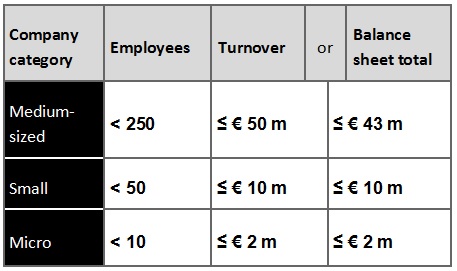26 February 2015
RSLs in Scotland and RPs in England and Wales will be familiar with the new Procurement Directive 2014/24/EU which is to be transposed into member states’ law by 16 April 2016 or earlier.
Scotland has 2012 Regulations for Public Contracts and Utilities, which require amendment in light of the new Directive. England and Wales have their own 2006 Procurement Regulations and already have draft replacement Regulations to transpose the new Directive. Except where Scotland introduced a Regulation for both Contracts and Utilities that enshrines the principles of the European Telaustria case, both jurisdictions follow EU Procurement Directives very closely.
However, Scotland has again gone one step further by introducing the Procurement Reform (Scotland) Act 2014 which deals largely with contracts with values below those thresholds and, as far as we are aware, for the first time, has introduced a statutory definition of SMEs – Section 9 (3) of that Act:
“small and medium enterprises” means businesses with not more than 250 employees.

The Directive does not define SMEs. What we have instead is the European Commission’s “non-statutory” definition of SMEs (set out in its Recommendation of 6 May 2003) – more elaborate in that it defines SMEs by reference to the number of employees and turnover or balance sheet total. (See table above).
It is evident that by choosing the figure of 250 employees, the Scottish Government aimed to align with the European Commission’s Recommendation.
One of the issues with the Scottish Government’s approach is: whilst it rightly aims to avoid exclusion of SMEs from major public contracts, the focus remains on the predicament of tenderers, not contracting authorities who are not much different from SME tenderers with limited resources. The Scottish Federation of Housing Associations summarised the situation very well when commenting on the 2014 Act proposals:
“... at a time of welfare reform changes and desperate housing need, our members can only see resources being wasted on an unnecessary bureaucracy imposed from above”.
bto have long argued that RSLs and RPs should not be subject to EU Procurement Regulations (Scots Law Times: Issue 24:22-7-2011 – pp 173-178). The Scottish Government has, if anything, compounded the problem by introducing the 2014 Act. However, as removing RSLs and RPs from EU Procurement seems to be a step too far, what other options might be considered?
- Could the Scottish and Westminster Governments respectively exempt RSLs and RPs, or contracting authorities generally, who meet the SME definition (250 employees or fewer) to lighten the burden?
- Or, another smaller threshold number of employees?
- Or, why not rely on turnovers or use a combination of the European Commission’s classification of SMEs?


